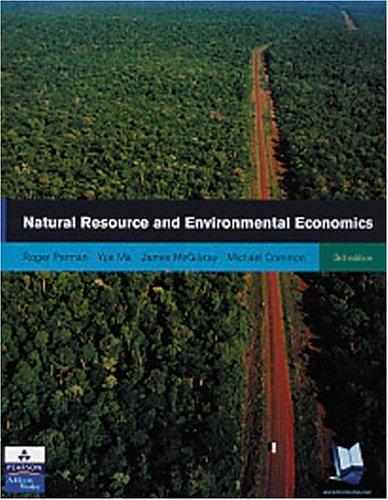You are given the following information: (a) A programme of air pollution control would reduce deaths from
Question:
You are given the following information:
(a) A programme of air pollution control would reduce deaths from cancer from 1 in 8000 to 1 in 10 000 of the population.
(b) The cost of the programme is expected to lie in the interval £2 billion (£2000 million)
to £3 billion annually.
(c) The size of the relevant population is 50 million persons.
(d) The ‘statistical value’ of a human life is agreed to lie in the interval £300 000 to
£5 million.
If the only benefit from the programme is the reduced risk of death from cancer, can the adoption of the programme be justified using an economic efficiency criterion?
1 Examine critically the basic assumptions of input–output models, in particular those related to the input–output (Leontief) production function and to factor supplies, and discuss the importance of these assumptions in affecting the validity and accuracy of environmental input–
output applications.
2 In discussing the results in Table 9.9 it was asserted that with uniform global taxation, the result would be the same using either fossil fuel production or consumption as tax base. Why is this?
Step by Step Answer:

Natural Resource And Environmental Economics
ISBN: 9780273655596
3rd Edition
Authors: Roger Perman, Yue Ma, Michael Common, David Maddison, James Mcgilvray






